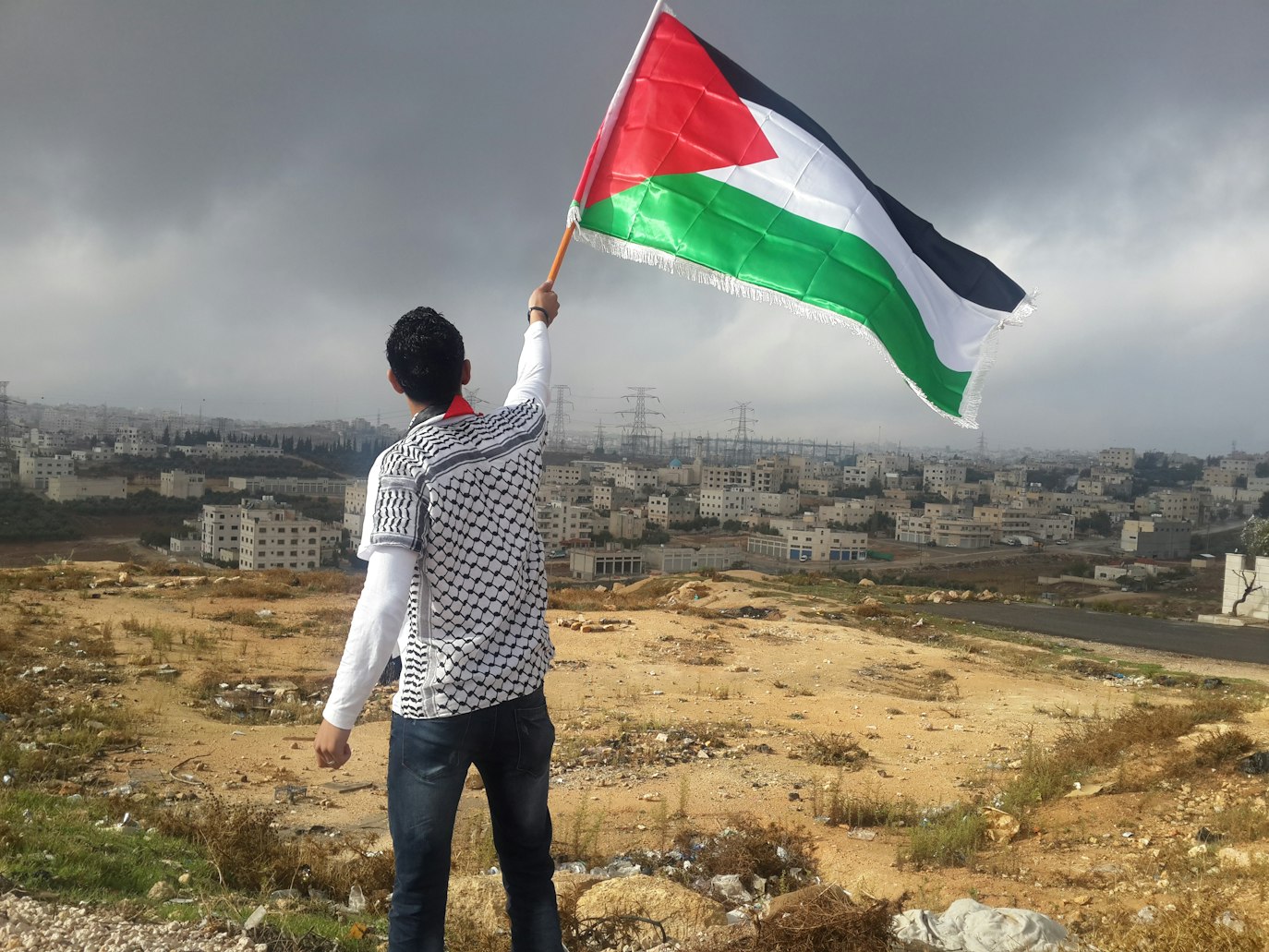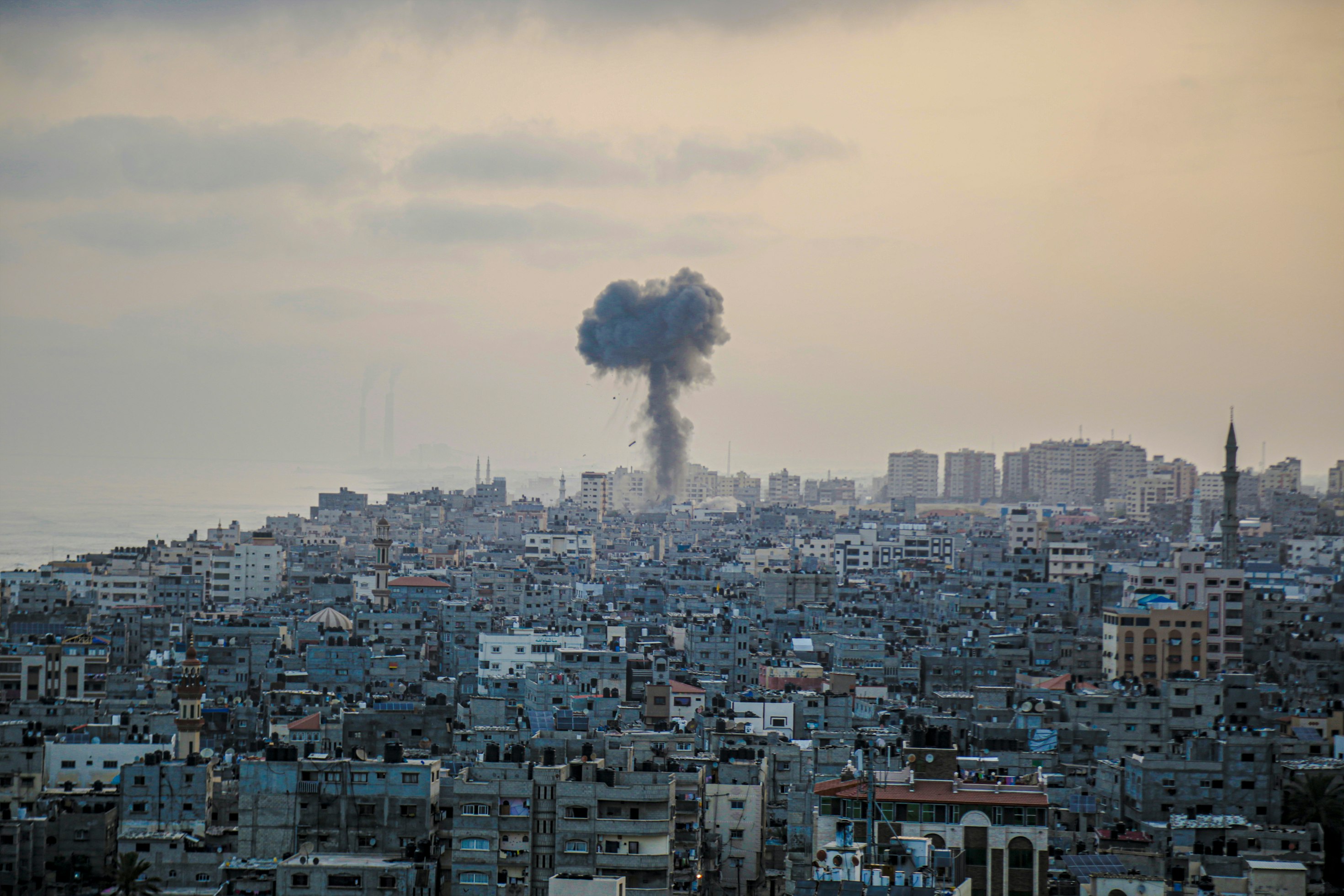Third Time Is Not Always a Charm
In present times, the situation we are witnessing between the Mediterranean Sea and the Jordan River is not necessarily different from what we have been used to in the past, with the exception of new factors that do differ in the course of this conflict.
I think one of the turning points in the way this Israeli-Palestinian conflict unravelled would be Operation Protective Edge (2014) where Israeli military forces launched an attack on Hamas in the Gaza Strip, resulting in thousands of Palestinian civilians injured and a couple thousands of deaths, adding to the complete destruction of buildings and infrastructures such as water supplies. In the same year, we saw the international recognition of the Palestinian Authority as a non-member observer state by the United Nations. According to data from the United Nations Office for the Coordination of Humanitarian Affairs (OCHA), the amount of blood shed from Palestinians has been untraceably higher when compared to previous years.
Rumours of a Third Intifada have been circulating around the news for many years, some going back as long as seven or eight years ago. Due to recent events, the idea of a third wave of Palestinian rebellion could be, now more than ever, plausible. Back in 2018, the Israeli Knesset (Parliament) approved the controversial “Nation-state Law” which stated, according to Miriam Berger in her Vox article: “the right to exercise national self-determination” in Israel is “unique to the Jewish people”; the establishment of Hebrew as the official language; and the promotion of the establishment and development of Jewish settlements in occupied Palestinian territories. This second point mentioned above could not have been more contradictory of Theodor Herzl’s “federation of tongues”, showing a clear episode of yet another dissociating step from the original Zionist proposals. This law was viewed as a bigger step towards the State of Apartheid in Israel, and it shaped immensely the course of this conflict for reasons that I will mention later.
Another concerning event is the “Veer to the Right” that Daniel Byman reflects in his article. The radicalization of Israel’s national politics and the growing far-right presence in the Knesset is jeopardising any hopes for a peaceful resolution. The Palestinians, as well as the International Community - namely the Western World - view this tendency with worry. For the Palestinians, well, because the far-right is associated with more violence and more disdain for international law and disregard for conventions around Human Rights. For the West, it is the little steps that make Israel lose its “Democracy” title, and a defeat for Democracy and Rule of Law in the Middle East. Some days ago, on the 27th of March, Prime-Minister Netanyahu and National Security Minister Ben Gvir signed an agreement by which a new security force will be formed under direct control of Ben Gvir. We’ve seen what political militias mean.

In response to Israel’s posture, Palestinian combat groups have formed and expanded in the West Bank and Gaza Strip. Though “poorly organized” and lacking “the skill and size of Fatah during its militant days or Hamas” (Daniel Byman, 2023), these new paramilitary groups show the increasing tendency for organised violent response to Israel’s occupation. In a street interview conducted by Corey Gil-Shuster posted on YouTube three months ago, we see that the youth not only see a Third Intifada as possible, but necessary, praising God (Allah) for it. The younger generation is eager for confrontation, and this could be problematic. One gentleman even gets to say that “what was taken by force will be returned by force”. This comes to show the distrust in solving the issue through negotiations and, consequently, it marks the division between the Palestinian Authority (PA) and the Palestinian people. The former lack authority and legitimacy, not only for constantly postponing elections in fear of losing them to Hamas, but also because there is this friction between the Authorities wanting to solve the problem by diplomacy and the people seeing that since diplomacy leads them nowhere, arms are the only solution. The author mentions that “More than 70 percent of Palestinians favour the formation of armed groups such as the Lions’ Den.”
Now, this possible Third Intifada would be different from the preceding two in two main aspects, from my perspective: Sally Abed, Member of the National Leadership and a Palestinian Activist in Israel, said as commentator of Al Jazeera in 2021 that the expansion of the settlements policy shapeshifted. While before we would witness settlement expansions in the occupied territories of the West Bank, now the tendency is to occur within Israel, namely in mixed cities (i.e. cities with mixed population of Jews and Arabs) such as Haifa, Lod, Akko and East Jerusalem, which is its own particular case. This and the Nation-state Law mentioned earlier rose tensions between the Israeli Arabs and Israeli Jews, bringing up the possibility of civil war; in addition, if a Third Intifada were to occur, this time it would be inside Israel. While the First and Second Intifada began within Palestinian territories such as the West Bank, Gaza and East Jerusalem, this time it is highly probable that it occurs inside Israeli borders. To sum up, this Third Intifada would be inside Israel, with/by Palestinians in Israel.
This explains the advancements in vigilance technology developed and implemented by the IDF (Israel Defence Forces) in order to monitor and control rebel Palestinians movements inside and outside Israel - “Although Israel still works closely with PA security services, it is better prepared today to act on its own” (Daniel Byman, 2023). The Palestinian Authorities are working side by side with the Israelis to suppress violent movements and individuals, since their goal is to reach a deal with Israel via non-violent ways. Thus, the PA is viewed by some as a “police puppet” of Israel inside the Palestinian territories, acting against the interests of the Palestinians.
How do we stop a Third Intifada from occurring? I don’t see how that would be possible without turning the already “not-so-democratic” State of Israel into a “more-than-it-already-is” Police State. The problem is that if that is the posture assumed by the Israeli Government, in the vicious circle that this conflict embodies, the Palestinians will have yet another reason for unrest, for feeling oppressed and humiliated, adding heat to the already boiling waters among Palestinian society. Also, as we’ve seen before, spontaneous rebellions occur from minor incidents and, as the term implies, they are spontaneous. So long as the Intifadas are not centrally organised and embodied by any organisation but the Palestinian People, they are really hard to suppress. It can erupt from anywhere, which is also why the IDF tries to suppress any possible escalation of violence at any given point, sort of like the Containment Policy of the United States during the Cold War. A decentralised and multifront course of action is hard to control and we’d have to wait and see how the IDF could keep it under its control.
Another Intifada would mean lots of dead and injured. But maybe that’s what it takes to open a new chapter in this conflict, that seems to have stagnated in the past years. When diplomacy doesn’t work, violence will. There is nothing charming about a violently erupted Intifada, except for those radicals who are blissful in the idea of sacrifice, revanchism and violence. But there is even less charm in being a face stamped by a boot, forever. Frederick Douglass once said that “The limits of tyrants are prescribed by the endurance of those whom they oppress.” – how much more can the Palestinian endure before they erupt in violence again? Should Israel try those limits? Under all the conditions Palestinian society is living through, it is hard to say unto them “do no harm”, but they should be conscious that a third time does not always come with a charm.


